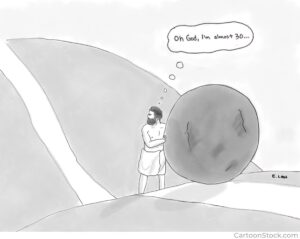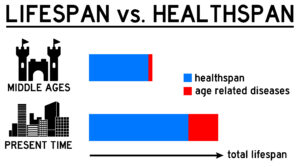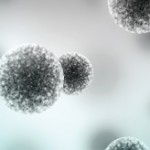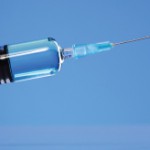Science has allowed us to keep you alive for longer but at what cost?
I have had many conversations with my patients about this over the years, and everyone has a different perspective.
From the fatalist 50 year old man with chronic disease: “Doc I feel I will die soon, because my father died at 57”
Me: “No, I won’t let you die at 57”
Patient: “Why not doc, It’s inevitable… it’s in my genes”
Me: “Because it’s not very good PR for me as a doctor and besides only 25% of it is down to your genes, the rest is up to you”
To the family of a 99 year old man with dementia who was bed ridden for years before I even met him:
“Doc, I know it may sound cruel but I hope for his sake he dies soon.. he doesn’t need to make 100.”
Me: “Well as good the PR may be for me as a doctor I agree with with you. Needless suffering is never good. I don’t think you are being cruel at all”
The former beauty queen hanging on to her youth with botox and fillers
” Doc aging is a bitch – don’t get old” –
Me: “Yes but the alternative is even less palatable”
Personally, I hope to be like my maternal grandmother, who played an 18 hole game of Golf until she was 90, and then when she did go, the illness was swift and nearly all 7 of her children got there in time. Her last words as they gathered round her bedside? ” I loved you all equally”
Or, my aunt “Hardcase” who at age 90 was known to play Poker until 3am in her high heels and girdle. She had a naughty sense of humour and once sat in the front pew of Assumption mass reading a novel because she was annoyed with the priest .for “Going on for so long” When Father asked her what she was reading she smiled wickedly and said “A very dirty book Father”
This, to me is the difference between Life span” – how long we will live and “Health span” – how long we will remain healthy enough to enjoy life. Science has been very good at the former, but chronic diseases, cancer and our lifestyles have conspired against the latter. Or rather, we have allowed them to. Many might feel that it is no good living to 100, if you are bed bound and can’t remember loved ones. Better to be playing poker in your high heels and girdle if that takes your fancy.
I meant what I said when I said that our genes only have about a 25% influence on how long, and how well we live. 75% is down to something called “Epigenetics” the influence of our environment on our genes. The environment is what we eat, what toxins we expose our bodies to, and how we exercise and sleep. Community. pets, family, spirituality also all play a role.
So what causes aging at a DNA Level? That’s a complex topic that Part 2 and 3 will go into. High levels of Insulin; high blood sugar; inflammation; toxin exposure; lack of sleep and lack of exercise are all involved. That’s why I bang on about lifestyle to my patients: keeping a healthy weight, minimising sugar, alcohol and smoking;
Of course, there are drugs that can help too. The science of aging/aging is always advancing. This is not just about looking younger on a surface level. It’s about slowing down DNA damage to help us remain physically active and mentally lucid with fewer chronic diseases for longer. Some simple, well known in expensive, anti diabetic drugs have been shown to have aging and s cardio-protective benefits. Some newer ones are even licensed for weight loss. 10 % weight loss immediately improves our cardiac health and the inflammation that causes DNA damage and aging. .Stay tuned for Part 2 on The Science of Aging!





